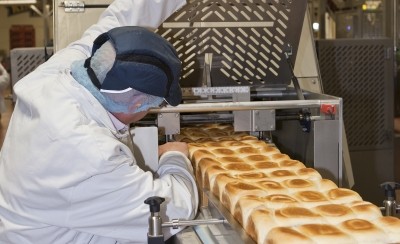‘Protect labour market’, as jobless rate falls: CBI

The official figures – covering the period from April 2017 to June 2017 – cuts the rate of unemployment to 4.4%, marking its lowest level in 42 years.
Separate figures confirmed falling productivity across British industry this year.
The CBI’s head of employment Matthew Percival said it was “incumbent upon the government to work with businesses to protect the UK’s flexible labour market, and design an industrial strategy that will drive productivity and wage growth”.
Falling productivity
Continuing strong employment growth was tainted by falling real wages, which reduced household spending power. Also, falling productivity was concerning because reversing the trend was “the only sustainable route to higher wages and better living standards”, he said.
Earlier this month a survey of employment agencies revealed employers were finding it harder to recruit staff.
Pay rates for both permanent and temporary staff were rising rapidly due to the continuing fall in the number of job applications, according to the market research business Markit for the Recruitment and Employment Confederation (REC).
The confederation’s chief executive Kevin Green said: “The jobs market continues to confound expectations with both permanent and temporary placements growing at the fastest rate for over two years.
‘Employers are struggling to hire’
“The parts of the economy most reliant on European workers are under even more pressure as many EU workers return home. Employers are not just struggling to hire the brightest and the best but also people to fill roles such as chefs, drivers and warehouse workers.”
- Kevin Green
“It’s clear that employers are having to work even harder to fill jobs as vacancies rise and candidate availability shrinks. UK employment remains at an all-time high and looks set to keep improving.”
Employers in food and drink manufacturing, agriculture and hospitality, who relied on migrant labour, were finding recruitment particularly challenging, according to the survey.
‘Reliant on European workers’
“The parts of the economy most reliant on European workers are under even more pressure as many EU workers return home,” said Green. “Employers are not just struggling to hire the brightest and the best but also people to fill roles such as chefs, drivers and warehouse workers.”
Starting salaries for permanent roles rose further in July, with the rate of inflation reaching a 20-month record. Also, hourly pay rates for short-term staff continued to rise sharply.
The strongest lift in permanent placements was recorded in the Midlands, followed by the North of England.
Meanwhile, for the latest job opportunities in food and drink manufacturing, visit FoodManJobs.
In my view: Zoe Cooper, FoodManJobs commercial director
“Although it’s a positive story in terms of number of jobs in the market, year-on-year the volume of active jobseekers is significantly down. Uncertainty in the labour market, the surge of EU nationals returning to the continent and an unclear Brexit mean people within manufacturing are sitting tight and waiting for clarity before changing roles.”

















